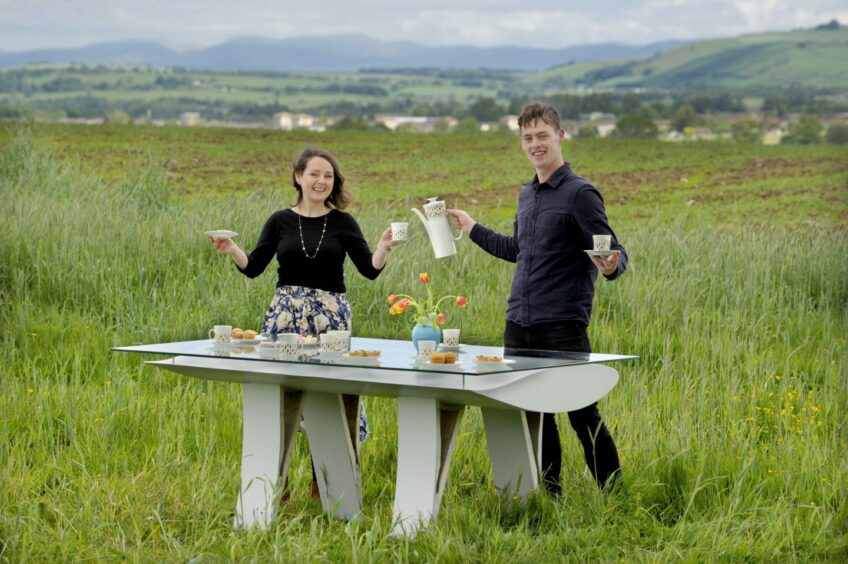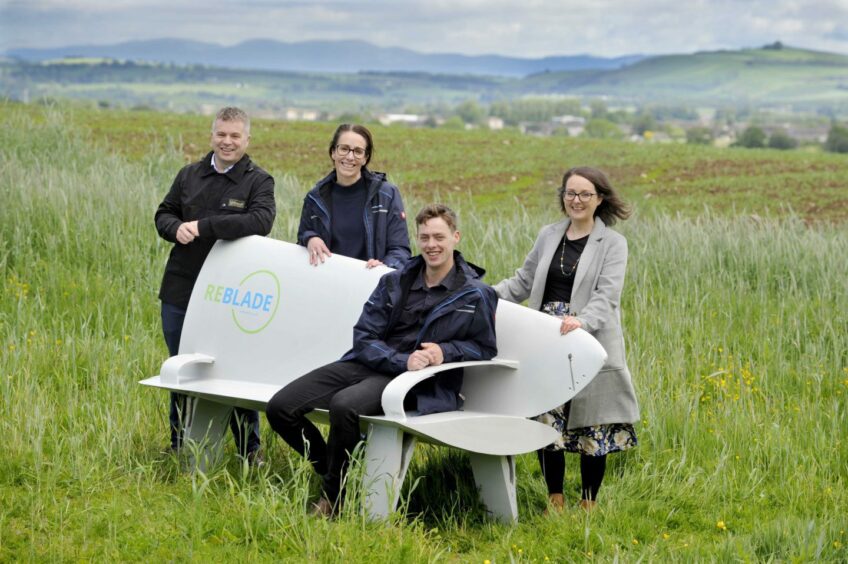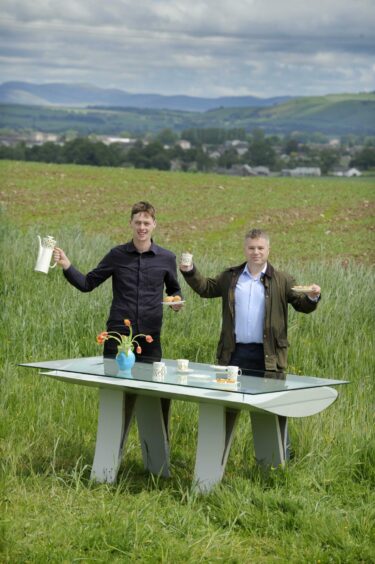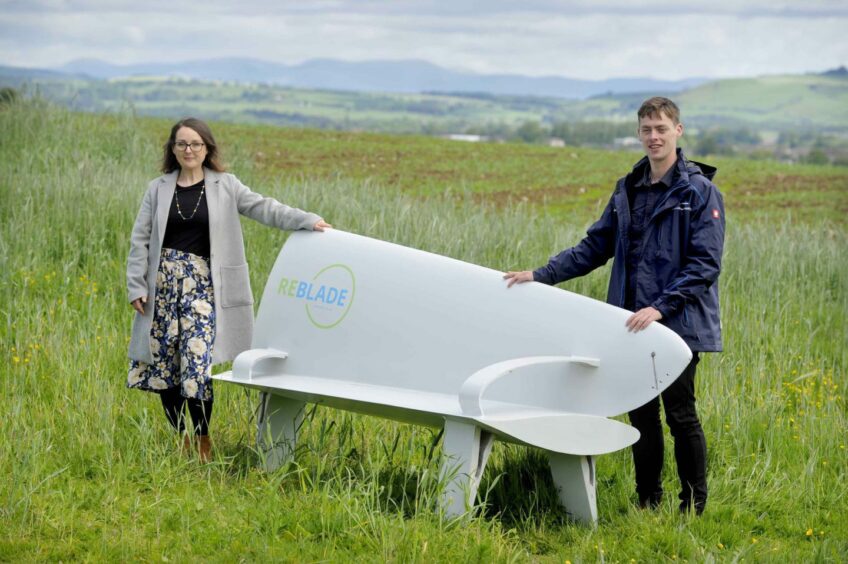
Old wind turbine blades could soon be used as bus stops or dining tables as part of ambitious new plans.
Green energy firm Fred. Olsen Renewables has joined forces with ReBlade to try to remove the last main barrier to complete turbine recyclability.
Announced today, the pair have formed an innovative partnership to explore solutions for reusing blades from Windy Standard Wind Farm, near Carsphairn in Dumfries and Galloway.
In order to repower the first phase of the development, Fred. Olsen plans to remove 36 turbines and replace them with up to eight wind turbines.
During the decommissioning phase, various materials will need to be dealt with, including more than 100 turbine blades.
A focus for the partnership is to identify solutions to repurpose or recycle the blades, currently a head sore for industry.
Wind turbine blades are notoriously difficult to recycle and repurpose and many are simply sent to landfill, though there is a growing drive to avoid this happening.
ReBlade and Fred. Olsen will explore opportunities to create items for use in the local area from the blades, such as playparks, bus shelters and bike racks.
Miles McConville, project manager at Fred. Olsen, commented: “Windy Standard Wind Farm has been operating for over 25 years and was one of the first wind farms to be built in Scotland. It will also be one of the first to be repowered. We want our repowering proposals to celebrate this legacy and this includes making sure that our proposals lead the way in identifying solutions for the recycling and repurposing of turbine blade materials.
“Working with Reblade will allow us to explore opportunities to repurpose turbine blades that are removed from site and give them a second lease of life in the local area. We are engaging with the local community to find out what they would like to see delivered, and, should our plans be approved, we hope to bring some of those ideas into fruition.”
To officially mark the partnership, the pair signed a memorandum of understanding on one of ReBlade’s furniture designs.
The table and bench are made from decommissioned turbine blades, which flew many millions of miles during their operational lifespans.
Fiona Lindsay, technical director of ReBlade, based in Glasgow, said: “This collaboration with Fred. Olsen Renewables should help to establish best practice in the wind energy sector in the UK by prioritising the development of sustainable decommissioning methods at a very early stage in the site repowering process.
“The non-recyclable nature of wind turbine blades is a known issue, and it’s one we’ve been actively exploring with partners in the industry. It’s great to be working with an innovative company like Fred. Olsen Renewables in pioneering scalable solutions that prioritise the circular potential of Scotland’s green energy assets.
“On a personal level, as the turbines I helped put in place early in my renewables career start to come down, I want to help determine a useful second life for these materials rather than seeing them being landfilled in turbine blade graveyards. Our priority is developing practical, workable solutions, and to do so in a way that creates local jobs and benefits local communities.”




